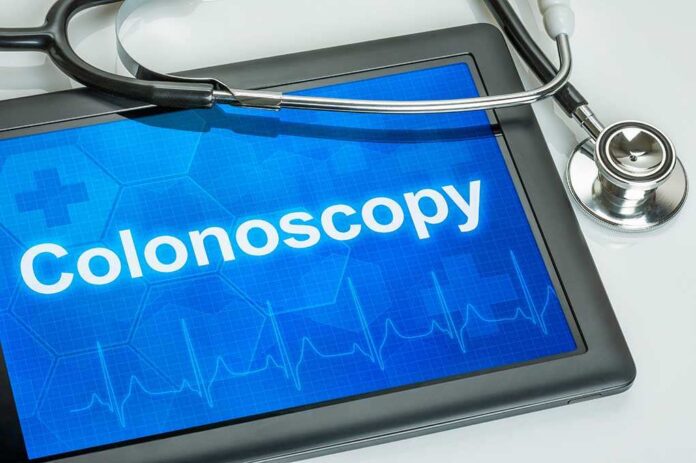
What if the future of cancer screening required nothing more than a simple trip to the bathroom and a scoop of science?
Story Snapshot
- Scientists at University of Geneva have catalogued human gut bacteria at the subspecies level, unlocking unprecedented detail for cancer detection.
- New stool test powered by machine learning detects 90% of colorectal cancers, rivaling colonoscopy accuracy.
- This approach promises affordable, accessible screening with enormous potential for global health impact.
- Microbiome-based diagnostics may soon extend far beyond colorectal cancer, changing how we understand disease.
Rewriting the Rules of Cancer Detection
Colorectal cancer is infamous for striking silently and late, often because the gold-standard colonoscopy is dreaded, delayed, or simply unavailable. The University of Geneva’s research team, led by Prof. Mirko Trajkovski, has flipped the script by cataloguing the gut microbiome at the subspecies level—a feat never before achieved. By harnessing this intricate microbial map and training machine learning models to recognize disease-linked bacterial patterns, they’ve created a diagnostic tool so sensitive it nearly matches colonoscopy’s performance, yet only requires a stool sample.
For decades, scientists understood that our gut bacteria held clues to colorectal cancer risk, but the signal was blurred by the sheer complexity and variability of microbial communities. Previous attempts at non-invasive screening, from DNA-based stool tests to immunochemical assays, struggled to break the 70% sensitivity barrier. The Geneva team’s breakthrough comes from looking deeper—zooming past species and strains to the functional diversity that subspecies represent. This level of resolution reveals unique microbial fingerprints that flag colorectal cancer with remarkable accuracy.
Why Subspecies Matter More Than Species
The catalogue’s magic lies in the details it captures. Imagine two individuals harboring the same bacterial species, but only one harbors a subspecies capable of triggering inflammation or producing carcinogenic compounds. Earlier diagnostic models, blind to this nuance, missed crucial disease signals. By mapping these subspecies, the Geneva researchers uncovered microbial signatures that consistently distinguish healthy patients from those harboring early-stage or advanced colorectal cancer. Machine learning, trained on this data, now parses these signatures with 90% sensitivity—outperforming every previous stool test and rivaling the accuracy of colonoscopy without its discomfort, cost, or logistical hurdles.
This leap addresses a long-standing problem in microbiome science: functional heterogeneity. Species-level analysis lumped together bacteria with radically different effects on human health. Subspecies analysis, by contrast, captures the hidden diversity shaping disease risk. Prof. Trajkovski emphasizes that this approach not only improves diagnostic accuracy, but also lays the groundwork for understanding how specific microbes drive cancer development—a step toward more personalized prevention and treatment.
The Stakes for Patients and Public Health
Colorectal cancer is the world’s second deadliest cancer, and rates are climbing among younger adults. Colonoscopy, though effective, remains intimidating and inaccessible for many, particularly in low-resource settings. The Geneva stool test, by contrast, is affordable, simple, and non-invasive. For patients, this means fewer excuses and more opportunities for early detection. For healthcare systems, it means dramatically lowering screening costs and increasing uptake, with the promise of catching cancer before symptoms appear.
Stakeholders are already taking note. Clinical partners have validated the test on real-world samples, confirming its high sensitivity. Public health authorities see potential for widespread adoption, especially in communities where colonoscopy is a luxury. Biotech companies and insurers are eyeing the technology for commercialization, anticipating major shifts in screening guidelines and reimbursement policies. If the test proves robust in larger, more diverse cohorts, it could reshape not just colorectal cancer detection, but the entire paradigm of microbiome-based diagnostics.
Beyond Colorectal Cancer: Open Questions and Future Promise
The Geneva catalogue is more than a diagnostic tool—it’s a gateway to understanding how the gut microbiome influences health and disease. Researchers are already exploring applications in other cancers, autoimmune conditions, and metabolic disorders. The implications extend to drug development, personalized medicine, and preventive care. While some experts urge caution, noting the need for broader validation, consensus is building around the catalogue’s transformative potential.
As the science matures, expect microbiome analysis to become a routine part of medical checkups, much like cholesterol or blood pressure measurements. The era of invasive screening may be ending, replaced by a future where a scoop of stool and a dash of machine learning reveal the secrets of our health—and perhaps save countless lives.
Sources:
University of Geneva official press release
Bioengineer.org: Gut microbiome signals early detection of colorectal cancer
SciTechDaily: Goodbye Colonoscopy? New Poop Test Detects 90% of Colorectal Cancers
ecancer: Gut bacteria can reveal colorectal cancer
ScienceDaily: Goodbye colonoscopy? Simple stool test detects 90% of colorectal cancers












